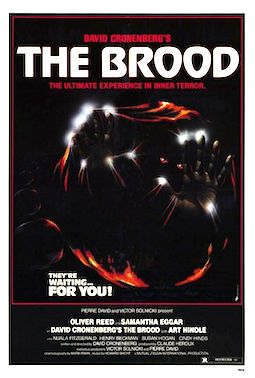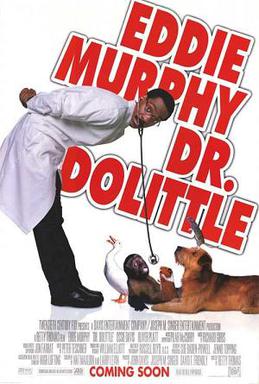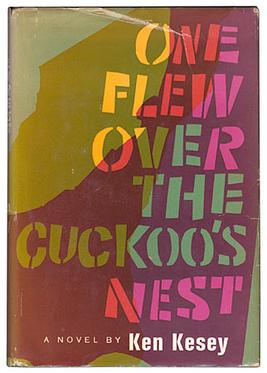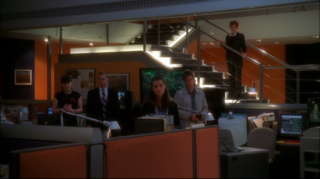
The Green Mile is a 1996 serial novel by American writer Stephen King. It tells the story of death row supervisor Paul Edgecombe's encounter with John Coffey, an unusual inmate who displays inexplicable healing and empathetic abilities. The serial novel was originally released in six volumes before being republished as a single-volume work. The book is an example of magical realism. The subsequent film adaptation was a critical and commercial success.

Walter Savage Landor was an English writer, poet, and activist. His best known works were the prose Imaginary Conversations, and the poem "Rose Aylmer," but the critical acclaim he received from contemporary poets and reviewers was not matched by public popularity. As remarkable as his work was, it was equalled by his rumbustious character and lively temperament. Both his writing and political activism, such as his support for Lajos Kossuth and Giuseppe Garibaldi, were imbued with his passion for liberal and republican causes. He befriended and influenced the next generation of literary reformers such as Charles Dickens and Robert Browning.

The Brood is a 1979 Canadian psychological body horror film written and directed by David Cronenberg and starring Oliver Reed, Samantha Eggar, and Art Hindle. Its plot follows a man and his mentally ill ex-wife, who has been sequestered by a psychiatrist known for his controversial therapy techniques. A series of brutal unsolved murders serves as the backdrop for the central narrative.

Top Girls is a 1982 play by Caryl Churchill. It centres on Marlene, a career-driven woman who is heavily invested in women's success in business. The play examines the roles available to women in old society, and what it means or takes for a woman to succeed. It also dwells heavily on the cost of ambition and the influence of Thatcherite politics on feminism.

William "Willy" Loman is a fictional character and the protagonist of Arthur Miller's play Death of a Salesman, which debuted on Broadway with Lee J. Cobb playing Loman at the Morosco Theatre on February 10, 1949. Loman is a 63-year-old travelling salesman from Brooklyn with 34 years of experience with the same company who endures a pay cut and a firing during the play. He has difficulty dealing with his current state and has created a fantasy world to cope with his situation. This does not keep him from multiple suicide attempts.

Green Hills of Africa is a 1935 work of nonfiction by American writer Ernest Hemingway. Hemingway's second work of nonfiction, Green Hills of Africa is an account of a month on safari he and his wife, Pauline Marie Pfeiffer, took in East Africa during December 1933. Green Hills of Africa is divided into four parts: "Pursuit and Conversation", "Pursuit Remembered", "Pursuit and Failure", and "Pursuit as Happiness", each of which plays a different role in the story.

Dr. Dolittle is a 1998 American fantasy comedy film directed by Betty Thomas, written by Larry Levin and Nat Mauldin, and starring Eddie Murphy in the title role along with Ossie Davis and Oliver Platt. The film was based on the series of children's stories of the same name by Hugh Lofting, but used no material from any of the novels; the main connection is the titular character Dr. John Dolittle and his ability to talk to animals, although the Pushmi-Pullyu, a much-loved feature of the books, notably makes a very brief appearance in a couple of scenes. The first novel, The Story of Doctor Dolittle (1920) had originally and previously been filmed in 1967 as a musical of the same name, which was a closer adaptation of the book. The film was a box-office success, although it received mixed reviews from critics upon release.

One Flew Over the Cuckoo's Nest is a novel by Ken Kesey published in 1962. Set in an Oregon psychiatric hospital, the narrative serves as a study of institutional processes and the human mind, including a critique of psychiatry and a tribute to individualistic principles. It was adapted into the Broadway play One Flew Over the Cuckoo's Nest by Dale Wasserman in 1963. Bo Goldman adapted the novel into a 1975 film of the same name directed by Miloš Forman, which won five Academy Awards.

Mark Ravenhill is an English playwright, actor and journalist.

John Kramer is a fictional character and the main antagonist of the Saw franchise. Jigsaw made his debut in the first film of the series, Saw, and appears in all subsequent sequels, with the exception of Spiral, in which he is only mentioned and featured in photographs. He is portrayed by American actor Tobin Bell.

K-PAX is a 2001 science fiction mystery film based on Gene Brewer's 1995 novel of the same name. An American-German co-production, it was directed by Iain Softley, starring Kevin Spacey, Jeff Bridges, Mary McCormack, and Alfre Woodard. The film tells the story of a psychiatric patient who claims to be an alien from the planet K-PAX. During his treatment, the patient demonstrates an outlook on life that ultimately proves inspirational for his fellow patients and especially for his psychiatrist.
Far Away is a 2000 play by British playwright Caryl Churchill. It has four characters, Harper, Young Joan, Joan, and Todd, and is based on the premise of a world in which everything in nature is at war. It is published by Nick Hern Books. While some critics have expressed reservations about the play's ending, many regard Far Away as one of Churchill's finest plays.

Derek Christopher Shepherd, M.D., F.A.C.S., also referred to as "McDreamy", is a fictional surgeon from the ABC medical drama Grey's Anatomy, portrayed by actor Patrick Dempsey. He made his first appearance in the pilot episode, "A Hard Day's Night", which was broadcast on March 27, 2005.
The Shadow Box is a play written by actor Michael Cristofer. The play made its Broadway debut on March 31, 1977. It is the winner of the 1977 Pulitzer Prize for Drama and Tony Award for Best Play. The play was made into a telefilm, directed by Paul Newman in 1980.

The Fire Within is a 1963 drama film written and directed by Louis Malle. It is based on the 1931 novel Will O' the Wisp by Pierre Drieu La Rochelle, which was inspired by the life of poet Jacques Rigaut. The film stars Maurice Ronet and features Léna Skerla, Jean-Paul Moulinot, Bernard Tiphaine, Bernard Noël, Jeanne Moreau, Jacques Sereys, and Alexandra Stewart in supporting roles. The score consists of music composed by Erik Satie and performed by pianist Claude Helffer.

"Hiatus (Part I)" and "Hiatus (Part II)" are the 23rd and 24th episodes of the third season of the American police procedural drama NCIS and the 69th and 70th episodes overall. They originally aired on CBS in the United States on May 9 and May 16, 2006. Both episodes were written by Donald Bellisario, the show's creator and executive producer at the time, and directed by Dennis Smith. They were seen live by 15.17 million and 16.49 million views, respectively.

Christopher Michael Taub, M.D. is a fictional character on the Fox medical drama House. He is portrayed by Peter Jacobson. He becomes a member of House's new diagnostic team in Season 4 Episode 9 which is titled as "Games".
Follow the Yellow Brick Road is a television play by Dennis Potter, first broadcast in 1972 as part of BBC Two's The Sextet series of eight plays featuring the same six actors. The play's central theme is of popular culture becoming the inheritor of religious scripture, which anticipated Potter's later serial Pennies from Heaven (1978). The play's title is taken from the song used in The Wizard of Oz, another version of which features in the incidental music.
Fear and Misery of the Third Reich, also known as The Private Life of the Master Race, is one of Bertolt Brecht's most famous plays and the first of his openly anti-Nazi works. It premiered on 21 May 1938 in Paris. This production was directed by Slatan Dudow and starred Helene Weigel. The production employed Brecht's epic theatre techniques to defamiliarize the behaviour of the characters and to make explicit the play's underlying message.

Elephant Song is a 2014 Canadian drama film directed by Charles Binamé and adapted from the same titled stage play by Nicolas Billon. The film premiered at the 2014 Toronto International Film Festival.















